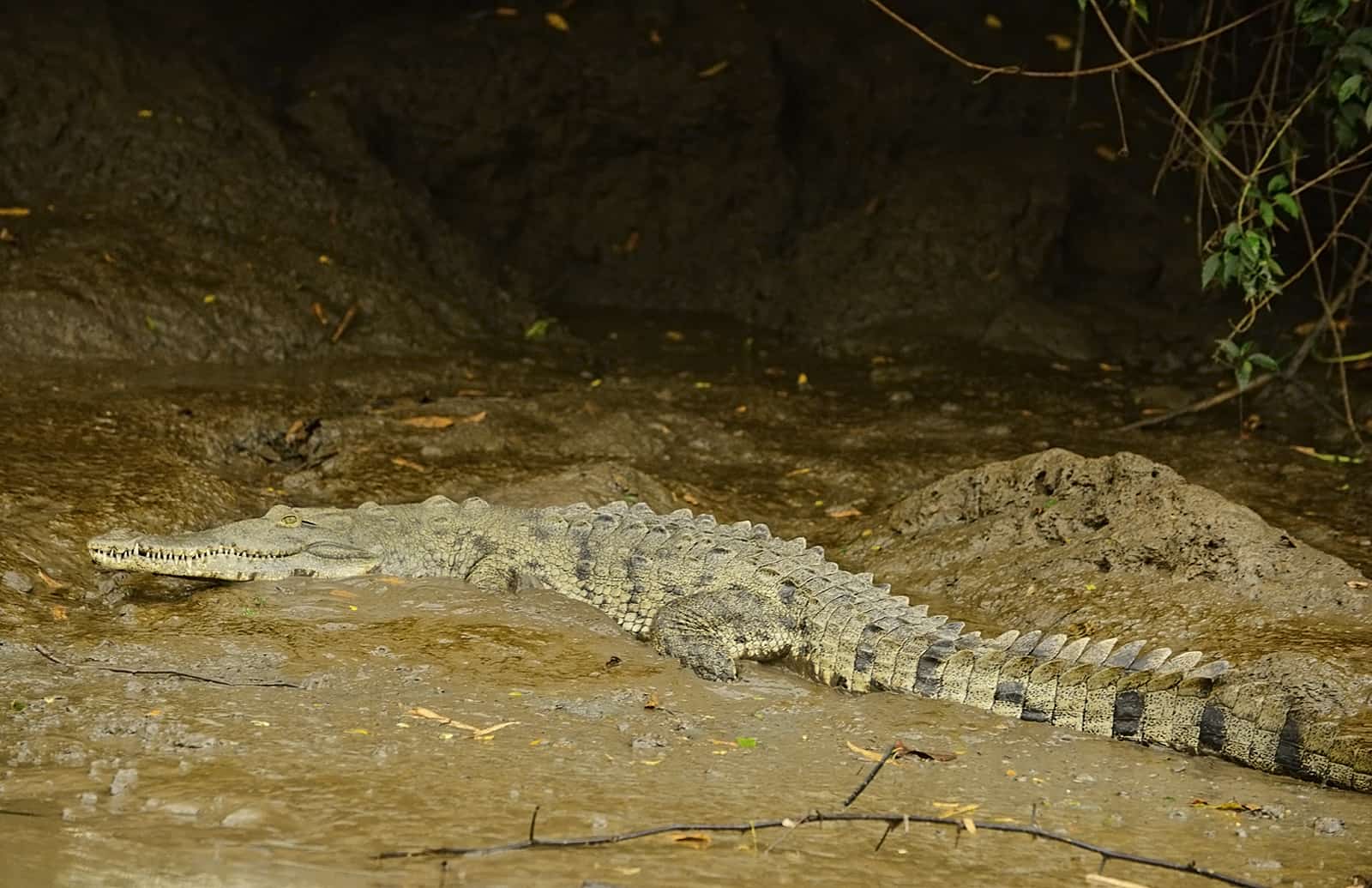In Costa Rica, American crocodiles can be found on both the Pacific and Caribbean coasts. The breeding season and the rainy season are two key factors that influence the movement of crocodiles into areas where they are not commonly found. Iván Sandoval, an expert from the School of Biological Sciences at the National University (UNA), explained that this phenomenon is more noticeable during these months, as the reproductive season begins.
“The larger and stronger males displace the weaker ones. They start roaming into areas where we don’t usually see them,” Sandoval said. During intense rains, full moons, or river floods, crocodiles avoid the main river channel, where currents are stronger, and move to the periphery. This can lead them into flooded areas, sometimes near human settlements.
In August, September, and October, males defend their territories and mate with females, avoiding competition from other males. By November, females that have mated begin building nests, with an incubation period of about three months. Young crocodiles typically emerge with the rains of the following year, around April.
Recently, crocodile attacks have been reported. Both humans and animals, such as dogs, have fallen victim, causing widespread concern. Many people believe there is now an overpopulation of crocodiles. Since 1990, crocodiles have been protected by law, as they were once in low numbers. Sandoval noted that their population has since recovered, largely due to successful breeding. However, experts caution that this does not mean an overpopulation exists.
“The studies we’ve conducted show that the habitat can still support many more crocodiles, and there are sufficient food resources available,” said the UNA expert. River mouths, estuaries, mangroves, and lagoons are prime crocodile habitats. Visitors to these areas must exercise extreme caution. While these animals generally avoid human contact, they will act defensively if they feel threatened.
Angie Sánchez, an official from the Wildlife Department of the National System of Conservation Areas (SINAC), emphasized that most human-crocodile encounters can be prevented. “The responsibility for personal safety, as well as the safety of pets and livestock, depends largely on how people behave in areas where crocodiles are present,” Sánchez said.






